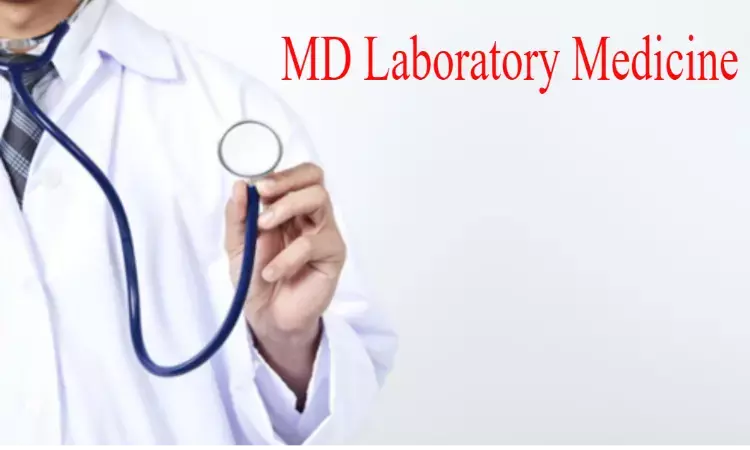- Home
- Medical news & Guidelines
- Anesthesiology
- Cardiology and CTVS
- Critical Care
- Dentistry
- Dermatology
- Diabetes and Endocrinology
- ENT
- Gastroenterology
- Medicine
- Nephrology
- Neurology
- Obstretics-Gynaecology
- Oncology
- Ophthalmology
- Orthopaedics
- Pediatrics-Neonatology
- Psychiatry
- Pulmonology
- Radiology
- Surgery
- Urology
- Laboratory Medicine
- Diet
- Nursing
- Paramedical
- Physiotherapy
- Health news
- Fact Check
- Bone Health Fact Check
- Brain Health Fact Check
- Cancer Related Fact Check
- Child Care Fact Check
- Dental and oral health fact check
- Diabetes and metabolic health fact check
- Diet and Nutrition Fact Check
- Eye and ENT Care Fact Check
- Fitness fact check
- Gut health fact check
- Heart health fact check
- Kidney health fact check
- Medical education fact check
- Men's health fact check
- Respiratory fact check
- Skin and hair care fact check
- Vaccine and Immunization fact check
- Women's health fact check
- AYUSH
- State News
- Andaman and Nicobar Islands
- Andhra Pradesh
- Arunachal Pradesh
- Assam
- Bihar
- Chandigarh
- Chattisgarh
- Dadra and Nagar Haveli
- Daman and Diu
- Delhi
- Goa
- Gujarat
- Haryana
- Himachal Pradesh
- Jammu & Kashmir
- Jharkhand
- Karnataka
- Kerala
- Ladakh
- Lakshadweep
- Madhya Pradesh
- Maharashtra
- Manipur
- Meghalaya
- Mizoram
- Nagaland
- Odisha
- Puducherry
- Punjab
- Rajasthan
- Sikkim
- Tamil Nadu
- Telangana
- Tripura
- Uttar Pradesh
- Uttrakhand
- West Bengal
- Medical Education
- Industry
MD Laboratory Medicine gets recognition by MCI Board of Governors

New Delhi: From now on, a new dimension of MD in Laboratory Medicine will be available to candidates wanting to pursue their PG medical course in the field of laboratory medicine. This comes as the Medical Council of India (MCI) has now given recognition to this course by its inclusion in the Post Graduate Medical Education Regulations, 2000.
The confirmation to this effect was given by Medical Council of India Board of governors (MCI BOG) via the official notification in The Gazette of India; which clearly mentions that MD Laboratory Medicine has been added in the Post Graduate Medical Education Regulations, 2000.
In the said the Gazette Notification dated, 2nd September 2020, the Board of Governors in Supersession of the Medical Council of India (MCI BoG) have stated,
In exercise of powers conferred by Section 33 of the Indian Medical Council Act, 1956 (102 of 1956), the Board of Governors in Super-session of Medical Council of India with previous sanction of the Central Government hereby makes the following regulations to further amend the "Postgraduate Medical Education Regulations, 2000" namely:—
1. (i) These Regulation may be called the "Postgraduate Medical Education (Amendment) Regulation, 2020."
(ii) They shall come into force from the date of their publication in the Official Gazette.
2. In the "Postgraduate Medical Education Regulations, 2000", the following additions/ modifications/deletions/substitutions, shall be as indicated therein:-
3. In Schedule of the Postgraduate Medical Education Regulations, 2000, Clause "A" under the heading "M.D.(Doctor of Medicine)", the following shall be added after, M.D.(Marine Medicine):- "MD (Laboratory Medicine)"
MD Laboratory Medicine
As per the information available with the All India Institute of Medical Sciences (AIIMS), with advancement of technology, like automation and shift of various new investigations from research laboratory to routine laboratory, the management of laboratory investigations has acquired a new dimension and has now been grouped under a new discipline 'Laboratory Medicine'. Further, this new discipline has been slowly encompassing many other important subdivisions engaged in diagnostic investigations. Thus, the discipline of Laboratory Medicine has soon become an important wing of patient care services not only in terms of screening and diagnosis of diseases but also in monitoring the course of the disease and management of the patient.
At the end of the training in MD Laboratory Medicine, the candidate will be able to:
1. Discuss the etiology and the pathophysiological basis of diseases in children and adults.
2. Explain the salient aspect of epidemiology, clinical presentation and prognosis of these disorders
3. Discuss rationality of the treatment and diagnosis of the above disorders
4. Make rational and relevant selection of tests (biochemical/ hematological/ microbiological etc.)
5. Perform the specified important tests belonging to physiology, biochemistry, microbiology, pathology, hematology & immunology disciplines with a high order of mastery.
6. Plan and manage a large multidisciplinary laboratory services
7. Supervise and train technical staff of the laboratory
8. Modify/develop and establish newer techniques belonging to all subspecialties of laboratory medicine.
9. Simultaneous exercise on quality assessment and quality assurance in all laboratory services.
10. Explain the underlying principle and design of important laboratory, instruments, their use as well as maintenance of the same.
11. Take safety measures in performing tests.
12. Assess cost-effectiveness of laboratory tests including budgeting and auditing.
13. Design and implement research plans in the field of laboratory medicine
The gazette can be accessed from the following link:
Garima joined Medical Dialogues in 2017 and currently works as the Senior Editor. She oversees coverage of all healthcare topics, with a focus on medico-legal cases, regulatory updates, decisions by NMC, DCI and medical councils, developments in medical education, government policies, and news on medical and dental colleges. She holds a Master’s degree in Journalism and Mass Communication and can be contacted at editorial@medicaldialogues.in | 011-43720751.


